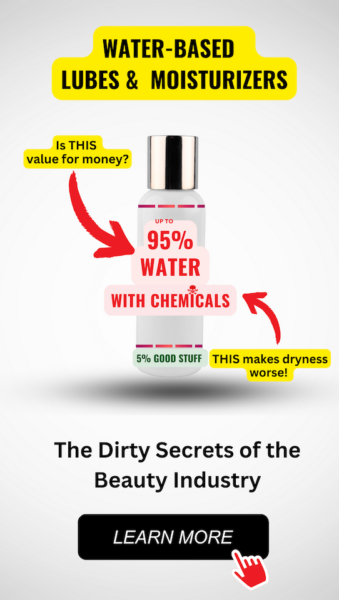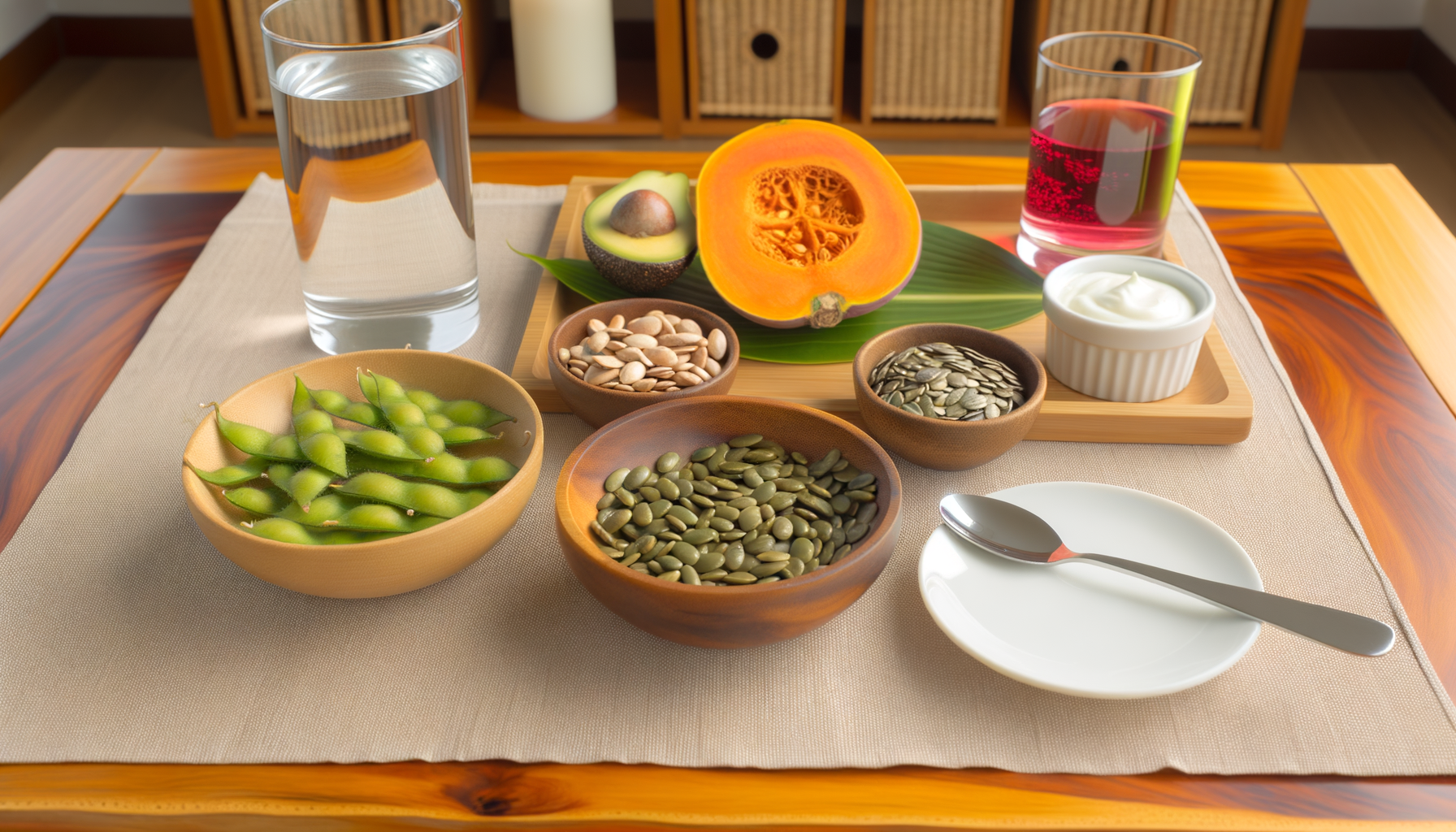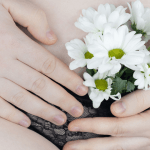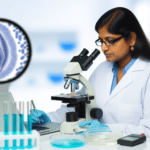Understanding Vaginal Dryness
Vaginal dryness is a common condition characterized by a lack of natural lubrication in the vagina, often leading to discomfort or pain. It is particularly prevalent among women approaching menopause, with approximately 85% of women over the age of 50 experiencing symptoms. However, it can affect women of all ages due to various factors.
Causes of Vaginal Dryness
The primary cause of vaginal dryness is often a decrease in estrogen levels, particularly during menopause. Other contributing factors include certain medications (such as antihistamines and antidepressants), medical treatments (like chemotherapy), and lifestyle factors (such as stress and lack of sexual arousal). Additionally, the use of scented soaps or douches can disrupt the natural balance of the vagina, leading to dryness.
Symptoms and Complications
Symptoms of vaginal dryness include itching, burning, irritation, and pain during intercourse. Complications can extend to frequent urinary tract infections, soreness, and increased risk of vaginal infections. The condition can also lead to dyspareunia, a term for painful sexual intercourse, which may cause a decrease in sexual desire and intimacy issues.
Impact on Quality of Life
Vaginal dryness can significantly affect a woman’s quality of life, causing emotional distress and impacting sexual health. The discomfort associated with the condition can lead to avoidance of sexual activity, contributing to relationship strain and reduced self-esteem. It is essential for women experiencing these symptoms to seek medical advice, as effective treatments are available.
Dietary Influence on Vaginal Health
Role of Hydration
Hydration plays a crucial role in maintaining vaginal health. Adequate water intake ensures the mucous membranes in the vagina are well-hydrated, which is essential for natural lubrication and the prevention of dryness and irritation. Drinking plenty of water can also help to flush out toxins and support overall bodily functions, including those that regulate the health of the vagina.
Essential Nutrients and Their Sources
A balanced diet rich in essential nutrients is key to vaginal health. Vitamins A, B, C, and E are particularly important as they contribute to the maintenance of mucous membranes, support the immune system, and protect against oxidative stress. Sources of these vitamins include colorful fruits and vegetables, nuts, seeds, and healthy fats. Additionally, omega-3 fatty acids, found in fish like salmon, mackerel, and tuna, as well as flaxseeds and walnuts, are known for their anti-inflammatory properties and role in maintaining cell membrane health.
Foods Rich in Phytoestrogens
Phytoestrogens are plant-derived compounds that can mimic the effects of estrogen in the body. Foods rich in phytoestrogens, such as soybeans, chickpeas, flaxseeds, and nuts, may help regulate estrogen levels and alleviate symptoms of hormonal fluctuations, such as vaginal dryness. Minimally processed soy products like tofu, tempeh, and edamame are particularly beneficial.
Probiotics and Vaginal Flora
The vaginal flora is predominantly made up of Lactobacillus species, which help maintain an acidic environment that protects against infections. Probiotic-rich foods, such as yogurt with live cultures, sauerkraut, kimchi, and kombucha, can support the growth of these beneficial bacteria. Regular consumption of probiotics may help restore and maintain a healthy vaginal microbiome, contributing to overall vaginal health.
In summary, a diet that includes plenty of water, essential nutrients, phytoestrogens, and probiotics can have a positive impact on vaginal health. It’s important to integrate these dietary elements with other lifestyle factors for optimal results.
By the way, something for you, a little gift!!!
I am just in the middle of publishing my book. It’s about How women can balance their hormones. One part is about food and diet, of course.
Follow this link and enter your email.
I will send you this part of the book for free once the book is published. It has many concrete, practical tips and recipes and will help you feel better during menopause or times of Big hormonal fluctuations.
Annette, Damiva Lead for Health & Wellness

Natural Remedies for Vaginal Moisturization
Fatty Acids and Vaginal Lubrication
One of the natural ways to combat vaginal dryness is through dietary intake of fatty acids, particularly omega-3s. These essential fatty acids are known to promote the production of the body’s natural lubricants, including those in the vaginal area. Foods high in omega-3 fatty acids, such as flaxseeds, chia seeds, walnuts, and fatty fish like salmon, mackerel, and sardines, can be incorporated into the diet to help enhance vaginal lubrication. The anti-inflammatory properties of these fats also contribute to overall vaginal health.
Vitamins and Vaginal Tissue Health
Vitamins play a crucial role in maintaining the health of vaginal tissues. Vitamins A, B, C, and E are particularly beneficial for vaginal health. Vitamin A helps in maintaining and repairing the mucous membranes, while the B vitamins, especially B2 and B6, are important for the regulation of estrogen levels. Vitamin C contributes to collagen production, which is vital for the elasticity and strength of vaginal walls. Vitamin E is known for its moisturizing properties and can be applied topically as an oil to soothe vaginal dryness. Foods rich in these vitamins, such as citrus fruits, leafy greens, nuts, and whole grains, should be a part of a balanced diet aimed at improving vaginal health.
Herbal Supplements: Benefits and Risks
Herbal supplements can offer benefits for vaginal moisturization, but they come with their own set of risks. Phytoestrogens found in herbs like red clover and soy have been suggested to help with menopausal symptoms, including vaginal dryness. However, the use of such supplements should be approached with caution, as they can interact with medications and may not be suitable for everyone. It is essential to consult with a healthcare provider before starting any herbal supplement regimen. Additionally, some herbs may have side effects or lack scientific evidence to support their efficacy, so it’s important to conduct thorough research and seek professional advice.
Note: While natural remedies can be helpful, they should not replace medical advice or treatment. If symptoms of vaginal dryness persist or worsen, it is important to consult a healthcare provider for a proper diagnosis and treatment plan.

Lifestyle and Home Remedies for Vaginal Dryness
Pelvic Floor Exercises
One of the natural ways to combat vaginal dryness is through pelvic floor exercises, commonly known as Kegel exercises. These exercises strengthen the pelvic floor muscles, which support the uterus, bladder, small intestine, and rectum. Strong pelvic floor muscles can help improve blood circulation to the vaginal area, potentially increasing natural lubrication. To perform Kegel exercises, tighten the muscles you would use to stop urinating and hold for a few seconds, then release. Repeat this several times a day for the best results.
Sexual Activity and Vaginal Health
Regular sexual activity, whether with a partner or through self-stimulation, can help maintain vaginal health. During arousal, blood flow to the genital area increases, which can help stimulate natural lubrication and keep vaginal tissues flexible. Using water-based lubricants during sexual activity can also prevent discomfort and irritation associated with dryness.
Sleep and Stress Management
Quality sleep and effective stress management are crucial for overall health and can influence vaginal health. Stress can affect hormone levels and lead to reduced vaginal lubrication. Techniques such as mindfulness, yoga, and deep breathing exercises can help manage stress levels. Ensuring adequate sleep helps regulate the body’s natural processes, including the production of estrogen, which is vital for vaginal lubrication.
Avoiding Irritants
To prevent further irritation of the vaginal tissues, it’s important to avoid products that can cause dryness or allergic reactions. These include:
- Scented soaps and body washes: Don’t use them. Rinse with water, once a day.
- Douches and vaginal sprays: These products can disrupt the natural balance of bacteria and pH levels in the vagina. Don’t use them.
- Harsh laundry detergents: Use hypoallergenic detergents for washing underwear.
- Tight clothing: Wear loose, breathable fabrics to allow air circulation and reduce friction.
By integrating these lifestyle and home remedies into your daily routine, you can help alleviate symptoms of vaginal dryness and improve your overall vaginal health.
Medical Treatments for Vaginal Dryness
Hormone Replacement Therapy
Vaginal dryness is a common issue that can arise from a decrease in estrogen levels, particularly during menopause. Hormone Replacement Therapy (HRT) is one of the medical treatments available to address this condition. HRT works by replenishing the body’s estrogen levels, which can help restore the natural lubrication of the vagina. There are various forms of HRT, including oral tablets, transdermal patches, and vaginal creams, rings, or tablets. While HRT can be effective, it is not suitable for everyone, especially those with a history of certain cancers or blood clots. It is essential to discuss the risks and benefits with a healthcare provider before starting HRT.
Over-the-Counter Lubricants and Moisturizers
For immediate relief from vaginal dryness, water-free, chemical-free over-the-counter lubricants and moisturizers can be beneficial. Lubricants are intended for use during sexual activity to reduce discomfort. Moisturizers, on the other hand, are designed for regular use to maintain vaginal moisture over time. Products like Cleo by Damiva and Mae by Damiva can be applied every few days to help keep the vaginal tissue healthy. It’s important to choose products specifically designed for vaginal use to avoid irritation and other complications. The products must be chemical-free because chemicals affect the vaginal flora, hormone-disruptors, and toxic. Many of them will make dryness worse over time.
Prescription Medications and Alternatives
Besides HRT, other prescription medications can help alleviate vaginal dryness. These treatments can offer relief for those who may not be candidates for traditional HRT. As with any medication, it’s crucial to consult with a healthcare provider to understand the potential risks and determine the most appropriate treatment. The big problem here is that the delivery agents are chemicals, which affect the vaginal flora and are hormone-disruptors, and toxic.
Additionally, lifestyle changes such as staying hydrated, engaging in regular sexual activity, and using natural oils like coconut or olive oil as external lubricants can complement medical treatments. However, it’s essential to note that oil-based lubricants have the wrong pH and will therefore affect the vaginal pH and flora, which can lead to more infections and is no long-term option.
In conclusion, a range of medical treatments is available for vaginal dryness, from hormone replacement therapy to over-the-counter lubricants and prescription medications. Each option has its considerations, and a personalized approach under the guidance of a healthcare provider is recommended to ensure safety and effectiveness.

Feeling You Have a Right to Safe Beauty & Fem Care?
If so, it may be time for a change. It starts with knowledge. We have a few suggestions in our new guides.
Navigating Menopause and Vaginal Health
Menopause Symptoms and Management
Menopause marks the end of a woman’s menstrual cycles and is diagnosed after 12 consecutive months without a period. This natural biological process typically occurs in women in their 40s or 50s and brings a variety of symptoms due to hormonal changes, primarily the reduction of estrogen. Common symptoms include hot flashes, night sweats, mood changes, and vaginal dryness. Vaginal dryness can lead to discomfort, itching, and pain during intercourse, significantly impacting a woman’s quality of life.
Management of menopausal symptoms often involves lifestyle adjustments, such as maintaining a balanced diet, staying hydrated, and engaging in regular physical activity. Dietary choices can influence vaginal health; for instance, foods rich in phytoestrogens, like soy products, may alleviate some symptoms. Additionally, staying sexually active can help maintain vaginal health by promoting blood flow to the area. For those experiencing severe symptoms, hormone replacement therapy (HRT) may be considered under the guidance of a healthcare provider.
Preventive Health During Menopause
Preventive health measures are crucial during menopause to manage symptoms and maintain overall well-being. A diet rich in essential nutrients, such as vitamins C and E, can support the health of vaginal tissues. Foods high in omega-3 fatty acids, like salmon and flaxseeds, may act as natural lubricants. Regular intake of probiotics through fermented foods can also support the balance of vaginal flora, potentially reducing the risk of infections.
It’s important to monitor blood glucose levels as high glycemic foods can exacerbate conditions like bacterial vaginosis (BV). Incorporating low-glycemic foods non-starchy vegetables can help maintain steady blood sugar levels and support vaginal health. Regular screenings and check-ups with a healthcare provider are also essential for early detection and management of any health issues that may arise during menopause.
Communication with Healthcare Providers
Open and honest communication with healthcare providers is key to effectively navigating menopause and maintaining vaginal health. Women should feel empowered to discuss their symptoms, concerns, and treatment preferences with their doctors. Healthcare providers can offer guidance on appropriate dietary choices, supplements, and medical treatments like HRT or vaginal moisturizers and lubricants.
It’s also important to discuss the risks and benefits of various treatments, including alternative remedies and lifestyle changes. Women should inform their healthcare providers about any supplements or herbal treatments they are considering, as some may interact with medications or have potential side effects. By working collaboratively with healthcare professionals, women can develop a personalized approach to managing menopause symptoms and maintaining vaginal health.
Do you know the three main ways that your body gets in touch with harmful chemicals with everyday products? Knowledge is Power!
The Ultimate Detox Guide will tell you how to lower your exposure to harmful chemicals!

Conclusion: Integrating Diet, Lifestyle, and Medical Care
Throughout this article, we have explored the multifaceted approach to combating vaginal dryness, emphasizing the importance of diet, lifestyle choices, and medical interventions. A diet rich in omega-3 fatty acids, antioxidants, probiotics, and phytoestrogens can play a pivotal role in maintaining vaginal health. Foods such as salmon, flaxseeds, and soy products are not only nutritious but also contribute to natural vaginal lubrication and a balanced pH. Hydration is equally crucial, with water intake being a simple yet effective strategy to support the body’s natural functions.
Lifestyle modifications, including regular pelvic floor exercises, stress management, and avoiding irritants, complement dietary efforts. These practices can enhance blood flow, reduce stress-related hormonal imbalances, and prevent irritation that may exacerbate dryness. Medical treatments, when necessary, such as hormone replacement therapy or over-the-counter lubricants, offer additional relief and should be discussed with a healthcare provider.
Personalized Approach to Vaginal Dryness
It is essential to recognize that each woman’s experience with vaginal dryness is unique. Personalized care, which may involve consulting with nutritionists, gynecologists, and other healthcare professionals, can lead to a tailored plan that addresses individual needs and concerns. Hormone testing, for instance, can provide insights that inform dietary choices and medical treatments, ensuring a more targeted and effective approach.
Women should feel empowered to discuss their symptoms openly with healthcare providers to explore all available options. By doing so, they can develop a comprehensive strategy that integrates diet, lifestyle adjustments, and medical treatments to alleviate symptoms of vaginal dryness.
Final Thoughts on Women’s Health Empowerment
Addressing vaginal dryness is more than just a matter of physical comfort; it is about empowering women to take control of their health and well-being. By understanding the role of foods, the impact of lifestyle choices, and the benefits of medical treatments, women can proactively manage their vaginal health. This empowerment comes from knowledge, the support of a healthcare team, and the confidence to make informed decisions about their bodies.
Ultimately, the journey to alleviate vaginal dryness is a testament to the broader goal of women’s health empowerment. It is a reminder that women have the right to feel comfortable, informed, and supported in all aspects of their health. By integrating diet, lifestyle, and medical care, women can not only improve their vaginal health but also enhance their overall quality of life.









